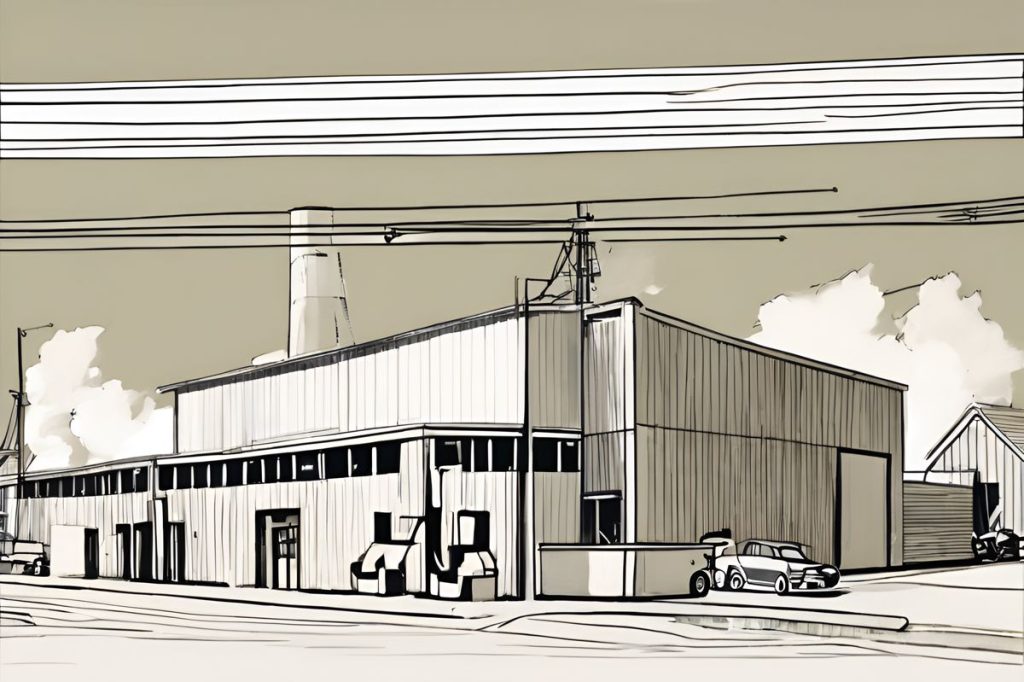Residents of Dali and Latsia in Nicosia are raising concerns over a factory’s unauthorized €1 million investment in aluminum processing equipment without proper permits, sparking worries about regulatory compliance, environmental impacts, waste management, and fire safety. The community is advocating for transparency and adherence to safety and environmental standards to protect public health and safety.
What are the concerns surrounding the unauthorized factory operations in Nicosia?
Local residents of Dali and Latsia in Nicosia are alarmed by a factory’s €1 million investment in equipment for aluminum processing without the required permits. Key concerns include noncompliance with regulatory procedures, potential environmental impacts, waste management issues, and fire safety hazards. The community is advocating for transparency and regulation adherence, emphasizing public health and safety.
Unsanctioned Equipment Purchase Raises Eyebrows
A recent surge of unease has permeated the communities of Dali and Latsia in Nicosia following the revelation that a factory has invested heavily in new equipment without first securing the appropriate permits. The acquisition, amounting to €1 million, precedes approval for the factory’s intended operational changes, sparking a wave of apprehension among local residents. This preemptive purchase has not gone unnoticed, prompting calls for intervention from several governmental bodies.
In a coordinated response, community members have implored the agricultural ministry, environmental department, and the House environment committee, along with the environment commissioner, to take decisive action. The factory’s initial permit allowed for plastic processing, but their recent application to switch to aluminum processing has yet to receive the green light. Despite this, the factory has pressed forward, equipping itself with substantial machinery tailored for aluminum, an act that sidesteps standard regulatory procedures and bypasses public consultation.
Environmental and Safety Concerns Ignited
The contentious issue goes beyond mere regulatory noncompliance. An environmental impact study has pinpointed several concerns, particularly with the factory’s waste management protocols. Furthermore, the implications of a potential fire are alarming; previous incidents in the area have led to costly damages, unfairly borne by the residents. The memory of material losses due to past fires looms over the community, exacerbating the current unrest.
In light of these developments, residents have not remained silent. A critical window for public commentary remains open until May 10, during which objections can be formally submitted. By leveraging this platform, the community seeks to amplify their concerns and challenge the advancement of the factory’s ambitions without proper oversight. The residents’ plea for transparency and adherence to safety and environmental standards reflects the broader societal demand for responsible industrial growth.
Public Mobilization and Advocacy
The situation serves as a stark reminder of the delicate balance between industrial development and community welfare. The residents’ proactive stance demonstrates a collective effort to safeguard their environment and well-being against hasty industrial decisions. By raising their voices, they hope to ensure that any changes to the local industrial landscape are made transparently, with public health and safety at the forefront.
Such grassroots advocacy underscores the power of community engagement in environmental stewardship. As residents await responses from the relevant authorities, their determination to hold the factory accountable sets an example for how vigilance and public action can influence corporate and governmental practices. As the deadline for public consultation draws near, the community’s resolve in the face of this industrial overreach remains steadfast, serving as a testament to their commitment to protecting their home and the environment for future generations.
What are the concerns surrounding the unauthorized factory operations in Nicosia?
Local residents of Dali and Latsia in Nicosia are alarmed by a factory’s €1 million investment in equipment for aluminum processing without the required permits. Key concerns include noncompliance with regulatory procedures, potential environmental impacts, waste management issues, and fire safety hazards. The community is advocating for transparency and regulation adherence, emphasizing public health and safety.
Why is the unsanctioned equipment purchase raising eyebrows in the community?
The factory’s decision to invest in new equipment for aluminum processing without obtaining the necessary permits has triggered concerns among residents of Dali and Latsia in Nicosia. This preemptive action has bypassed regulatory procedures, environmental impact assessments, and public consultation, heightening worries about compliance, environmental consequences, waste management, and fire safety risks.
What actions have residents taken in response to the unauthorized factory operations?
Community members have reached out to governmental bodies, including the agricultural ministry, environmental department, House environment committee, and the environment commissioner, urging intervention. They have also utilized the ongoing public commentary period to voice objections and advocate for transparency, safety, and adherence to environmental standards in the factory’s operations.
How does the public mobilization in Nicosia reflect broader concerns about industrial growth and community welfare?
The residents’ proactive stance illustrates the importance of balancing industrial development with community welfare and environmental protection. By engaging in advocacy efforts and demanding accountability from the factory, the community showcases the power of public action in influencing corporate and governmental practices. Their commitment to transparency, safety, and environmental standards sets a precedent for responsible industrial growth and environmental stewardship.

